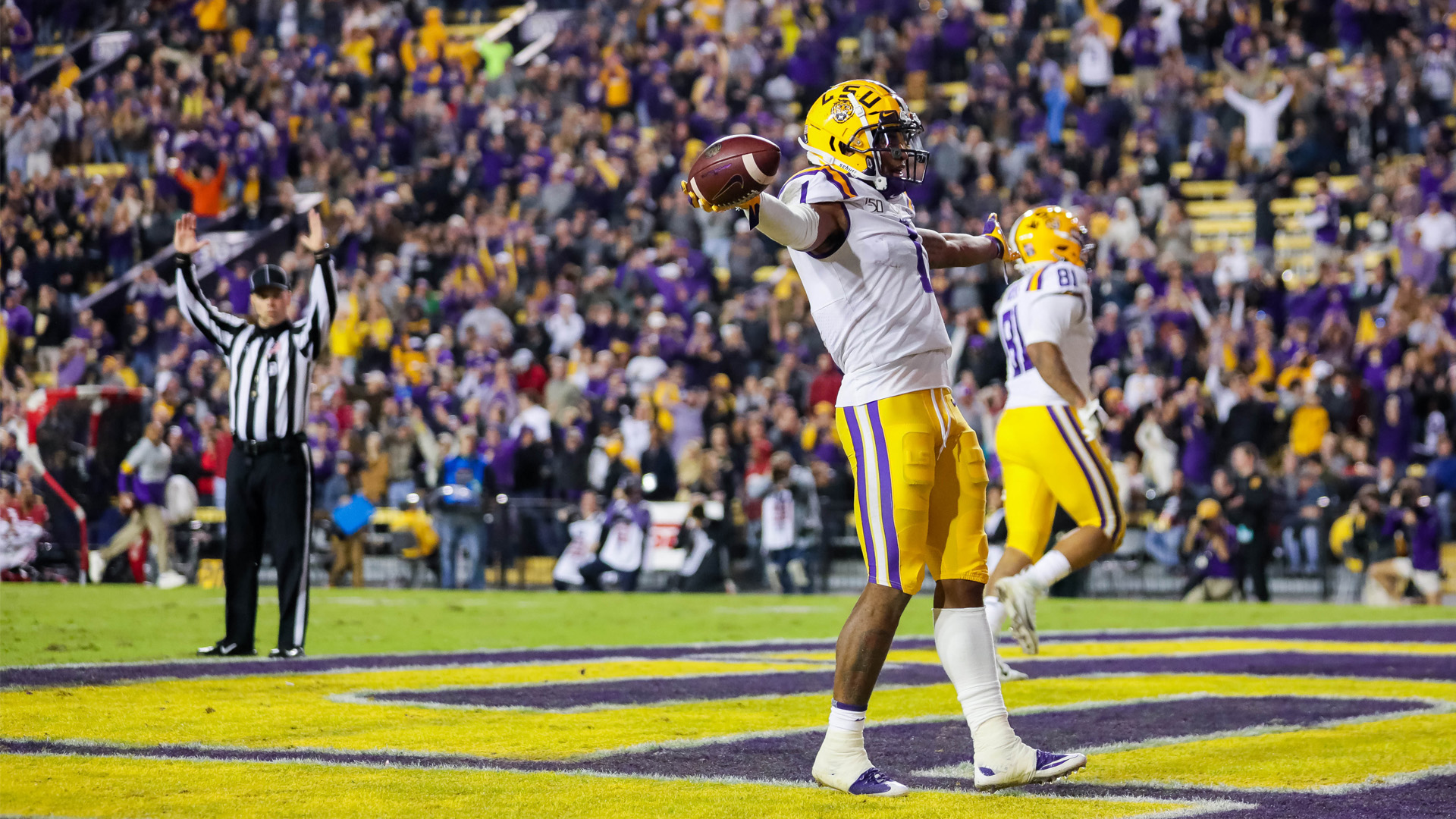
If Ja’Marr Chase’s decision to opt out is sign of things to come, dose of reality should come with it
By Phil Ervin
Published:
This COVID thing has a way of speeding up things we viewed as inevitable but thought we had more time.
Remote working. Retail disruption. Curbside pickup. Movements for more power to college football players.
They existed before. They’ve accelerated exponentially this year.
There’s a notion among coaches, fans, media and even NFL agents that ultra-talented sophomores opting out belongs in the same category. LSU receiver Ja’Marr Chase’s choice could indeed foreshadow a paradigm shift.
But if that’s the case, the cream of the college crop and their inner circle best be wary.
This isn’t a new conversation. Jadeveon Clowney was viewed as NFL-ready after his sophomore season at South Carolina earlier this decade. Chase Young at Ohio State had a similar trajectory. We’ve heard it said ad nauseam Clemson quarterback Trevor Lawrence has little to nothing to prove to NFL scouts this season.
Chase isn’t even the first potential first-rounder to opt out this year. Minnesota wideout Rashod Bateman, Penn State linebacker Micah Parsons and Memphis running back Kenneth Gainwell are on a growing list of guys foregoing their true junior seasons.
Two years ago, Buckeyes rush end Nick Bosa left early following an injury to prep for the draft.
Bateman, Parsons and Gainwell, for their part, cited the pandemic and its associated risks to their careers and families as the impetus for their decisions.
Chase’s has been a little murkier; his official statement announcing his choice didn’t get into specifics. Speculation swirled that former Tigers and NFL safety Ryan Clark or opportunistic agents got in his ear.
Chase’s father denied both rumors, telling a local radio station the decision came down to “common sense.”
“You got the COVID going on, you got long-term effects of COVID, you have generational change in money out there, you have the injury bug, you have questions about the season,” Jimmy Chase said on Baton Rouge-based ESPN 104.5 FM show “Off the Bench.” “There’s too many questions and too many unanswered things going on. To put yourself in that situation may not be the ideal thing. That’s what’s so hard.”
That’s the Chases’ reasoning, at least on the record. But there’s little doubt elite high school players are watching this situation closely. Even if we get to 2021 and have the virus under control, what’s to stop the next superstar from putting up gargantuan numbers his freshman and sophomore seasons then taking a year off to train and prep for the draft? Especially if this crop produces multiple first-rounders.
At least one major college football coach’s answer? Nothing.
“No doubt,” Pittsburgh coach Pat Narduzzi told CBS Sports. “Now we’ve opened it up for these agents who can continue to drill, drill, drill, drill, drill, drill. ‘You had a bad at practice? Coach yelled at you a little bit?’ All the sudden, ‘I’m out of here.'”
Agents agree.
“It’s already happening,” an unnamed agent said in a Yahoo Sports column this week.
Reporting from CBS Sports’ Dennis Dodd and Yahoo Sports’ Eric Edholm in both of those articles led them to say this will be a trend for years to come.
Of course, it’ll depend on the situation. In general, it’s easier for skill players than, say, an offensive lineman to have their body NFL-ready before they turn 21. What are their college team dynamics like? Do they have a chance to compete for a championship? That might sound idealistic, but try telling that to Lawrence or Justin Fields, who have advocated strongly for college football to be played this fall amid a pandemic.
There’s also the notion of development. The NFL has long looked to major college football to serve as a de facto minor league system of sorts. What does a full year outside that environment look like, and how does it prepare him for a long pro career?
Another question — do NFL teams care if a player is a “team guy?” Maybe it’s archaic, but isn’t there something to be said for a player who loves the sport, his teammates and his school enough to put in a good junior season even if his individual stock is already sky-high?
Perhaps that’s wishful thinking in this age of individualism. The risk of injury — and, in these days, the unknown long-term effects of COVID-19 to boot — are very real.
Narduzzi and other coaches seem to view this is a negative. But wouldn’t you take a year from a guy like Chase as a trade-off? It’s hard to imagine LSU fans swapping 2019 for an extra season of Chase catching passes from Joe Burrow.
And how many guys are we talking about here? Ten, 15, 20 at the most each year? That number could change.
But even a one-year wonder can have positive recruiting impacts for years to come. You can bet P.J. Fleck will be pointing to Bateman’s success every time the Gophers coach sits down with a prospective wideout.
But 2020 has taught us something else: Personal agendas often trump the common good. Simply because a sophomore is told he’s draft-ready doesn’t mean he should just jump ship.
Those who cover amateur sports have come across far too many parents with an inflated view of their kid’s potential. It’s a well-intentioned viewpoint that can easily run amok. So as Edholm points out, athletes would be wise to consult objective scouting databases in making their decisions. A tweaked College Advisory Committee calendar that allows sophomores to take part would be beneficial, as well.
All told, Chase wasn’t the first to do this, and he won’t be the last. But in a vacuum, this trend shouldn’t change college football as we know it.
COVID has already taken care of that.
Phil Ervin is a veteran college football writer with experience covering both the SEC and Big Ten.







